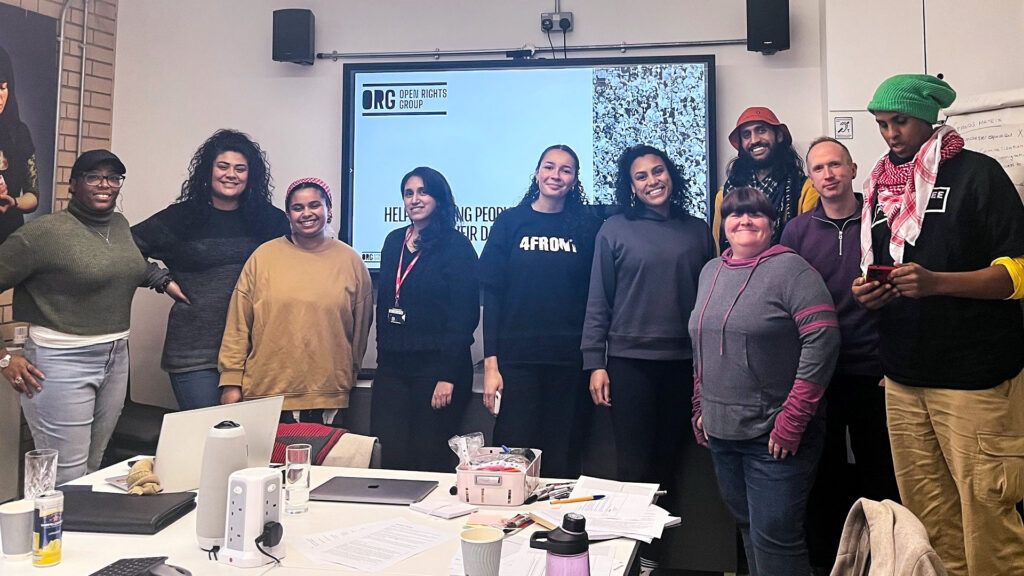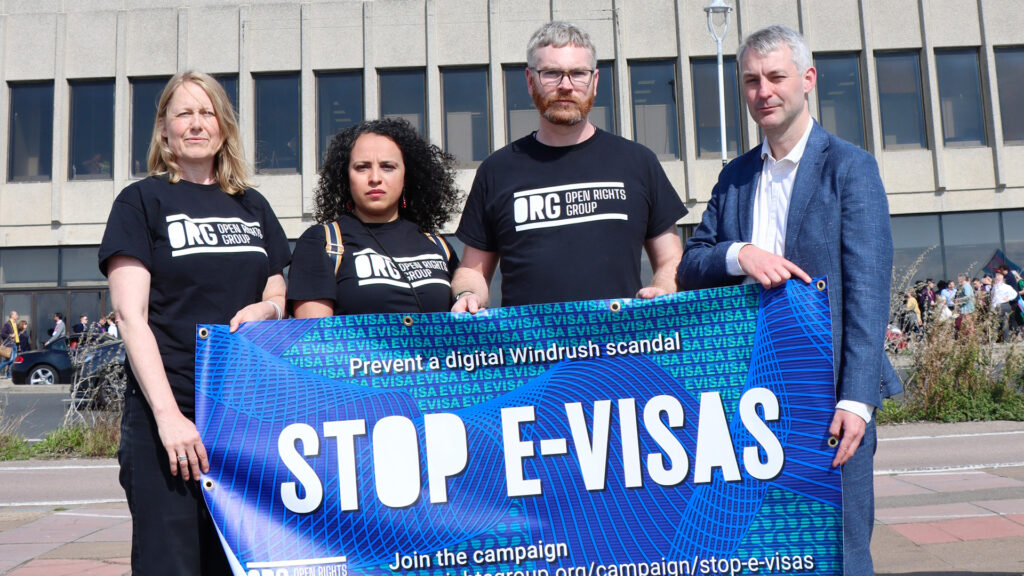
Digital Privacy
23 Dec 2024 Pam Cowburn
ORG Review 2024
It’s been another busy year for digital rights, with the added excitement of an earlier than expected General Election! Here are some of the key moments from 2024.
Making the case to end Prevent
Our report Prevent and the Pre-Crime State showed that the data of people who are referred to the Prevent programme is widely shared and retained for years, even when referrals are marked ‘no further action’.
The report revealed that the data of some people who are referred to Prevent is being shared with airports, ports and immigration services. This helps to explain the concerns that people who have been referred to Prevent have been subsequently questioned at ports and airports under schedule 7 of the Terrorism Act.
The significance of this was highlighted in the film Phantom Parrot, which explored how schedule 7 has been used to stop activists and journalists and extract data from their phones. A number of ORG staff taking part in Q&A screenings of the film at Picturehouse cinemas across the country.
Getting digital rights on the election agenda
Rishi Sunak’s decsion to call an early General Election took the country by surprise. Fortunately ORG had already consulted with our members and supporters to develop our Digital Rights 2024 Manifesto, which many of our supporters shared with their MP candidates.
Along with human rights, migrant and justice rights organisation, we called on all candidates to use respectful language about migrants. We were pleased that many committed to our call for Digital Sanctuary.
We also launched our tool to help you opt out of data processing by political parties in the run up to the General Election. Findings from our work into how parties use our data will be published in 2025.
Not one, but two data protection bills
We said goodbye to the Data Protection and Digital Information Bill and hello to its watered down offspring, the Data Use And Access (DUA) Bill.
The DUA still undermines our rights, hands more power to government and corporations, and weakens the independence of the Information Commissioner’s Office (ICO). However, in the most recent House of Lords debate, it was heartening to hear a number of peers raise ORG’s concerns and refer to three of our previous legal actions, as well as our alternative ICO annual report and our recent letter about removing our right to have human review of AI decisions.
Sign the petition: people, not machines
The Data Bill needs to be amended to protect our right to request a human review of automated decisions that impact your life
Take action
Helping people exercise their data rights
We helped young people and migrants exercise their data rights through training and workshops.
Challenging corporate abuses
We complained to the ICO about Liveramp’s use of privacy-invasive profiling, that can link our browsing habits to our real identity and even our home address.
We complained again about Meta’s plans to scrape its users’ posts, pictures, videos and comments for AI development – which they closed down after secret talks with the social media giant. This was disappointing but not unexpected, as the ICO has long failed to enforce our data protection rights, as highlighted by our alternative ICO report.
The ICO’s decision to close down our complaint and our report into their lack of enforcement were both highlighted by Lord Clement Jones in the House of Lords as examples of “a lack of criticality—speaking truth to power—in the present ICO”.
Calling for an end to predictive policing
We called for Safety not Surveillance, bringing together dozens of organisations into a coalition that calls for an end to ‘predictive’ policing systems. With an AI Bill expected in the New Year, we are ready to fight for the end of policing systems that exacerbate racism and undermine our right to be presumed innocent.

Trying to avert a digital Windrush scandal
We published E-Visas: Hostile and Broken about the Home Office’s flawed e-visa scheme, which we predicted could lead to a digital Windrush scandal in 2025. After reading about the report in The Guardian, many migrants got in touch to share their experiences of the scheme with us, and many of our supporters emailed their MPs to raise concerns.
The Home Office appear to have listened to some of these as the 31 December cut off for the scheme has been delayed. We hope this will be an opportunity to bring in changes that will ensure people can prove their immigration status in any circumstances.
